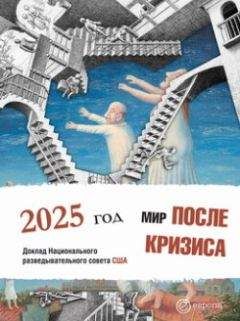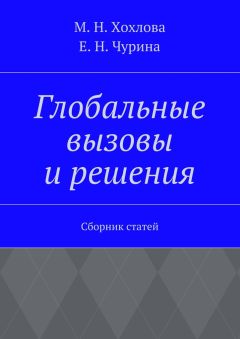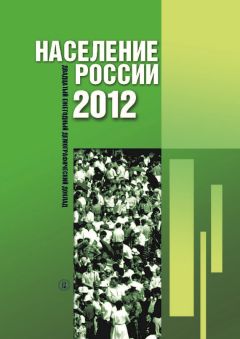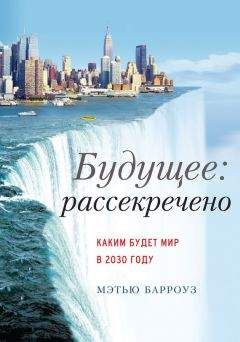Oscar Wilde - The Happy Prince and Ohter Tales
cataract ['kætərækt] couch [kaυt∫] bulrush ['bυlrλ∫] beryl ['beril]
`I am waited for in Egypt,' answered the Swallow. `To-morrow my friends will fly up to the Second Cataract. The river-horse couches there among the bulrushes, and on a great granite throne sits the God Memnon. All night long he watches the stars, and when the morning star shines he utters one cry of joy, and then he is silent. At noon the yellow lions come down to the water's edge to drink. They have eyes like green beryls, and their roar is louder than the roar of the cataract.'
`Swallow, Swallow, little Swallow,' said the prince, `far away across the city (далеко, на том краю города: «по ту сторону города») I see a young man in a garret (я вижу молодого человека, /живущего/ на чердаке/мансарде). He is leaning over a desk (он склоняется над столом; to lean — наклонятся, нагибаться) covered with papers (заваленным: «покрытым» бумагами; to cover — покрывать), and in a tumbler by his side (и в стакане /для вина/ рядом с ним; side — стенка, сторона) there is a bunch of withered violets (стоит: «есть» букет засохших фиалок; bunch — связка, пучок). His hair is brown and crisp (у него курчавые/вьющиеся каштановые волосы; brown — коричневый, бурый; crisp — кудрявый), and his lips are red as a pomegranate (и его губы красные, как гранат/ы/), and he has large and dreamy eyes (и глаза у него большие и мечтательные; to dream — видеть сон, мечтать). He is trying to finish a play (он пытается закончить пьесу; play — игра, забава; пьеса, драма) for the Director of the Theatre (для Директора Театра), but he is too cold to write any more (но он слишком замерз, чтобы писать дальше/больше; cold — холодный, озябший). There is no fire in the grate (в камине нет огня; grate — решетка, камин), and hunger has made him faint (и он совсем ослабел от голода: «и голод сделал его ослабевшим»; to make smb., smth. + прилагательное — превращать, приводить в какое-либо состояние).'
garret ['gærit] withered ['wiðəd] pomegranate ['pomigrænit]
`Swallow, Swallow, little Swallow,' said the prince, `far away across the city I see a young man in a garret. He is leaning over a desk covered with papers, and in a tumbler by his side there is a bunch of withered violets. His hair is brown and crisp, and his lips are red as a pomegranate, and he has large and dreamy eyes. He is trying to finish a play for the Director of the Theatre, but he is too cold to write any more. There is no fire in the grate, and hunger has made him faint.'
`I will wait with you one night longer (я задержусь = останусь с тобой на еще одну ночь; to wait — ждать, переждать),' said the Swallow, who really had a good heart (у которого было действительно доброе сердце). `Shall I take him another ruby (мне отнести ему еще один: «другой» рубин; to take — брать, хватать)?'
`Alas! I have no ruby now (увы, теперь у меня нет рубина),' said the Prince; `my eyes are all that I have left (мои глаза — вот все, что у меня осталось; to leave (left) — уходить, оставлять). They are made of rare sapphires (они сделаны из редких сапфиров), which were brought out of India (которые были привезены из Индии; to bring (brought) — приносить, привозить) a thousand years ago (тысячу лет назад). Pluck out one of them (вытащи один из них; to pluck — срывать, щипать) and take it to him (и отнеси его тому юноше: «ему»). He will sell it to the jeweller (он продаст его ювелиру), and buy food and firewood (и купит еды и дров; fire — огонь, wood — лес, древесина), and finish his play (и закончит свою пьесу).'
`Dear Prince,' said the Swallow, `I cannot do that (я не могу сделать этого);' and he began to weep (и он начал плакать).
`Swallow, Swallow, little Swallow,' said the Prince, `do as I command you (сделай как я приказываю тебе).'
jeweller ['dζu:ələ] firewood ['faiəwυd] command [kə'mα:nd]
`I will wait with you one night longer,' said the Swallow, who really had a good heart. `Shall I take him another ruby?'
`Alas! I have no ruby now,' said the Prince; `my eyes are all that I have left. They are made of rare sapphires, which were brought out of India a thousand years ago. Pluck out one of them and take it to him. He will sell it to the jeweller, and buy food and firewood, and finish his play.'
`Dear Prince,' said the Swallow, `I cannot do that;' and he began to weep.
`Swallow, Swallow, little Swallow,' said the Prince, `do as I command you.'
So the Swallow plucked out the Prince's eye (тогда Ласточка вытащил /сапфир/ из глаза Принца), and flew away to the student's garret (и улетел к чердаку/мансарде студента). It was easy enough to get in (попасть внутрь было достаточно просто; to get in — входить, влезать), as there was a hole in the roof (так как в крыше была дыра). Through this he darted (сквозь эту /дыру/ он /стремительно/ влетел; to dart — помчаться стрелой, метнуться), and came into the room (и попал: «вошел» в комнату; to come (came, come) — приходить). The young man had his head buried in his hands (молодой человек закрыл /свою/ голову /своими/ руками; to bury — хоронить; прятать, скрывать), so he did not hear the flutter of the bird's wings (поэтому он не слышал трепетания крыльев /птицы = ласточки/), and when he looked up (и когда он поднял глаза) he found the beautiful sapphire (он обнаружил прекрасный сапфир; to find (found) — находить, отыскивать) lying on the withered violets (лежащий на засохших фиалках; to lie (lay, lain) — лежать).
through [θru:] bury ['beri] violet ['vaiəlit]
So the Swallow plucked out the Prince's eye, and flew away to the student's garret. It was easy enough to get in, as there was a hole in the roof. Through this he darted, and came into the room. The young man had his head buried in his hands, so he did not hear the flutter of the bird's wings, and when he looked up he found the beautiful sapphire lying on the withered violets.
`I am beginning to be appreciated (меня начинают ценить по достоинству; to appreciate — ценить, высоко ставить),' he cried (вскричал он); `this is from some great admirer (это /точно/ от какого-то большого почитателя/поклонника; to admire — восхищаться, восторгаться). Now I can finish my play (теперь я могу закончить свою пьесу),' and he looked quite happy (и выглядел он совершенно счастливым; to look — смотреть; выглядеть).
The next day the Swallow flew down to the harbour (на следующий день Ласточка полетел к гавани; to fly (flew, flown)). He sat on the mast of a large vessel (он сел на мачту большого корабля; to sit (sat); vessel — сосуд; судно, корабль) and watched the sailors (и наблюдал за моряками; to sail — плавать, плыть под парусами) hauling big chests (которые тащили большие сундуки; to haul — тянуть, волочить) out of the hold with ropes (из трюма с помощью веревок).
`Heave a-hoy (раз-два, взяли; to heave — поднимать /с усилием/, вытягивать)!' they shouted (кричали они) as each chest came up (когда поднимался очередной: «каждый» сундук; to come (came) up — подходить, подниматься).
`I am going to Egypt (я собираюсь в Египет)!' cried the Swallow (кричал Ласточка), but nobody minded (но никто не обращал внимания; to mind — возражать, заботиться; обратить внимание), and when the moon rose (и когда взошла луна) he flew back to the Happy Prince (он полетел назад к Счастливому Принцу).
appreciated [ə'pri:∫ieitid] harbour ['hα:bə] hauling ['ho:liŋ]
`I am beginning to be appreciated,' he cried; `this is from some great admirer. Now I can finish my play,' and he looked quite happy.
The next day the Swallow flew down to the harbour. He sat on the mast of a large vessel and watched the sailors hauling big chests out of the hold with ropes.
`Heave a-hoy!' they shouted as each chest came up. `I am going to Egypt!' cried the Swallow, but nobody minded, and when the moon rose he flew back to the Happy Prince.
`I am come to bid you good-bye (я прилетел, чтобы попрощаться; to bid — ист. объявлять, заявлять),' he cried (крикнул он).
`Swallow, Swallow, little Swallow,' said the Prince, `will you not stay with me one night longer (не останешься ли ты со мной на еще одну ночь)?'
`It is winter (уже зима),' answered the Swallow (ответил Ласточка), `and the chill snow (и холодный снег) will soon be here (вскоре уже будет здесь). In Egypt the sun is warm (в Египте — теплое солнце) on the green palm-trees (на зеленых пальмовых деревьях), and the crocodiles lie in the mud (и крокодилы лежат в тине; mud — грязь, слякоть; ил) and look lazily about them (и лениво оглядываются: «смотрят лениво вокруг /себя/»; lazy — ленивый). My companions are building a nest (мои друзья вьют гнезда; companion — товарищ, компаньон; to build — строить, сооружать; вить /гнезда/) in the Temple of Baalbec (в Храме Баальбека; Baalbec — город в Ливане, знаменит развалинами храмов, относящихся к римскому периоду, когда город был известен как Гелиополис), and the pink and white doves are watching them (а розовые и белые голуби наблюдают за ними), and cooing to each other (и воркуют друг с другом; to coo — ворковать). Dear Prince, I must leave you (дорогой Принц, я должен покинуть тебя), but I will never forget you (но я никогда не забуду тебя), and next spring I will bring you back (и следующей весной я принесу тебе; to bring back — приносить обратно, возвращать) two beautiful jewels (два прекрасных драгоценных камня) in place of those you have given away (вместо тех, что ты отдал/подарил; place — место, to give (gave, given)). The ruby shall be redder than a red rose (рубин будет краснее красной розы), and the sapphire shall be as blue as the great sea (и сапфир будет таким же синим, как само море).'




